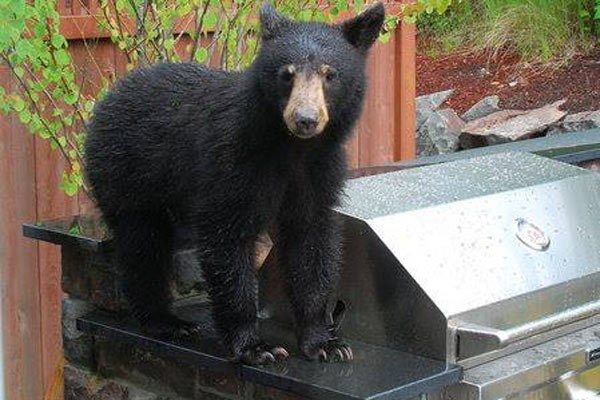I'm not sure what else Get Bear Smart's Sylvia Dolson, or the conservation officers, or other local bear advocates can do at this point.
After pleading in Pique on June 6 to "step up and save this bear's life" by controlling attractants in the Nordic neighbourhood the bear was frequenting, this week we learned that the tagged black bear, Bjorn, had to be killed.
The day before the Nordic bear was killed, three bears — a mother and her two cubs — were killed by conservation officers in Squamish.
Last week, Olive was killed on Blackcomb Mountain after repeatedly getting into a building, finding other human-food sources and bluff charging workers at the same location.
Can you imagine what it is like to kill five bears in just a few days when your job description contains the word "conservation?"
Every time I hear about a bear being killed, I recall a column written by a Chris Parmeter, then a district wildlife manager for Colorado Parks and Wildlife in the Gunnison Basin, which we ran in Pique in 2012.
"The acrid smell of gunpowder lingered in the air, mixed with the sweet, sickening smell of bear blood that oozed down the driveway of the home," wrote Parmeter recalling his most recent call to kill a bear that had been breaking into a home.
"The blood looked black illuminated in the glow of the porch light and the wavering beams of our flashlights. The bear was black too — big, black, and now, lifeless.
"I wish that it hadn't ended up this way; the bear's final agonized writhing in the driveway, the smoking shotgun, my hands shaking from the rush of adrenaline and emotion. Unfortunately, neither of us had much say in the matter. This tragic end had been decided long ago.
"Some bears, no doubt, must be killed. But many of these incidents can be avoided if people used some common sense.
"Our final encounter, considerably less pleasant for both of us over any previous ones, involved two slugs fired from my 12-gauge shotgun into his chest.
"As he gasped his last breath and his blood oozed out onto the driveway, I only wished that all those people we had met along the way could have been there to share this moment with us. Maybe then... well..."
Well...what if the people responsible for the death of the bear had to watch it be killed or made to pull the trigger?
We have all seen the low snowline all spring. We all know the food sources on the mountain are not what we would hope for the bears right now. They are hungry and they are doing whatever their instincts tell them to find food.
We are not allowed to feed them in a controlled setting to keep them away from other human food sources — Dolson already pursued that avenue in 2015 requesting that the province allow Get Bear Smart to implement a diversionary food program.
"In my view, the only humane thing to do at this critical time is to help where we can," said Dolson at the time after learning the province would not OK the program.
Maybe a feeding program is off the table, and the hope is that natural food sources will soon keep bears in nature where they belong. But there is no getting away from the fact that bears and humans interact in this resort all the time.
And with Whistler Blackcomb's plans to increase the number of downhill trails in Creekside, the mountain bear's habitat is only going to get smaller and smaller.
Bears in the valley are also being crowded thanks to the millions of visitors the resort hosts annually, the increasing recreational footprint of the visitor and the ill-informed actions of both visitors and residents alike.
This past weekend, I saw a village garbage can overflowing with pizza boxes and drink cups with food scraps and spilt pop on the ground below.
Come on, people!
If the garbage is full — walk to the next one and use it (that's what I did).
At home, get out an old pot or pan, and leave it by the front door with a good, strong wooden spoon to hit it with. Make noise if you see a bear in the yard.
When you lock your car for the last time at night, take out the granola bar wrapper, the old sushi take-out container, the nearly empty can of pop with you to the house.
And for our bears' sakes, clean your ground-floor barbecue, put your bird feeders so far off the ground they cannot be reached except by flight, and never leave your garbage by the front door.
These seem such simple things to do, and yet they are still not being done. I'm imploring everyone to act now so that no more bears have to be destroyed.




